We have to ask: do you feel as though the usual eating rules are left on the suburban curb when you’re on a road trip? Magically, it is ok for the children to have ice cream at dinner, and then munch a packet of M & M’s for breakfast (or rather, breakFAT) instead of healthy road trip meals.
The unhealthy road trip snacks choices that we find at gas stations, convenience stores, and fast-food chains along the way make us feel like we don’t have any other options. Do we eat unhealthy just to keep the hunger at bay, or do we look for healthy travel snacks recipes and other healthy alternatives.
With a little luck, you’ll find a couple of stowaway bananas with your bag of potato crisps—just to ease your conscience a bit with “healthy road trip meals”— fool on you! That grocery bag full of colorful candies and sugar-boosted snacks might look like a lot, but it is tantamount to filling up your diesel engine with gasoline—disastrous.
Driving has depleted your body of energy, you have not really moved in hours , or days—now trying to top up your body with sugar is bound to lead to a crash—literally and physically.
What is the best way to prevent this from happening? What are some ways you can avoid stumbling down the rabbit hole of unhealthy road food?
In order to help you make the most of your road trip, we’ve put together a healthy “road trip food list” on a budget that will keep you satisfied and nourished. We also look at the unseen and terribly negative effects of fast food on your body.
Planning your next campervan adventure? Don’t leave your campsite selection to chance! Check out our comprehensive guide on Campervan Campsite Selection. This essential resource provides valuable insights into choosing the perfect location, amenities, and campsite type for your RV journey. Elevate your travel experience with our expert tips and advice!
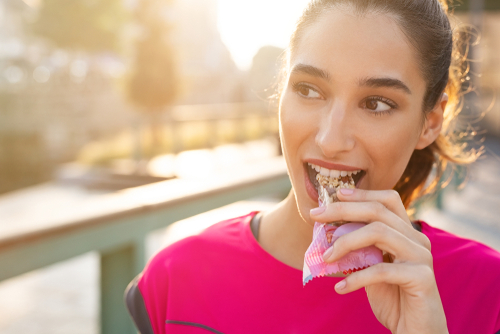
Fast Foods: The Good, the Bad, and the Ugly
Fast food is not the squirrel that escaped the lynx, but more like a hundred squirrels tied to the same tree— an easy feast—and soon the lynx will be just another fat cat.
So what is ‘fast food’ exactly?
Generally, fast food is made and served quickly. The food can be ordered from many places: restaurants, counters, takeout, drive through, and delivery services. This kind of food is in demand because it is convenient, cheap, and tastes good. But it’s usually not a good substitute healthy road trip meals.
The term “fast food”, also refers to mass-produced food that is intended for commercial resale and in which the priority is placed on “speed of service” rather than other factors of culinary science.
Originally developed to accommodate travelers, commuters, and wage workers who could not afford to eat at a public house or diner, fast food has been a commercial success. Speed was selected as the chief measure, so that customers on a tight schedule (a commuter stopping to pick up dinner for their family, for example, or employees on a lunch break) wouldn’t have to wait as long as they would at a traditional restaurant. In 2018, globally, the fast food industry was estimated to be worth $570 billion.
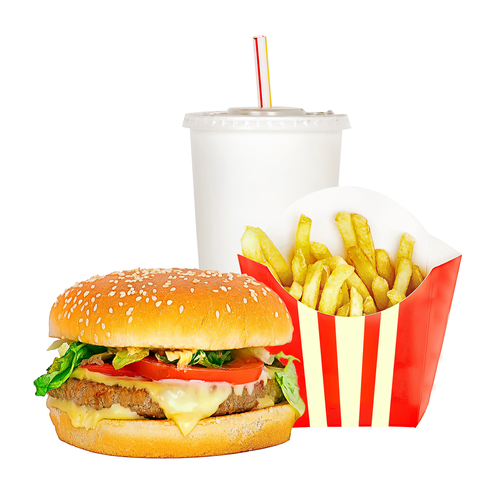
What happens to your body when you eat fast food?
Numerous studies have demonstrated the negative health effects of fast food consumption, both long-term and short-term.
In terms of nutrition, fast food is usually terrible. An article in the journal Health Promotion Perspectives, reports that fast food contains a variety of processed ingredients and preservatives, thus largely unhealthy ingredients. It is high in sugar, salt, and saturated and trans fats—with very little nutritional value. A regular diet of fast food can have a variety of negative health effects, which is why you should consider taking healthy road trip meals on your next family vacation.
Short term impact of fast food
According to a small study, eating a sugar-heavy breakfast can lead to subsequent hunger much quicker than eating a low-sugar breakfast. This is due to sugary foods’ poor ability to provide satiety, or a feeling of fullness, according to doctors, dietitians, and other health experts.
A high-carbohydrate diet increases the body’s insulin demand, which in turn promotes a person getting hungry quicker after eating. A person is more likely to eat more calories than necessary if they are hungry before their next meal.
According to a study, high levels of salt can negatively impact a person’s blood vessel function rapidly after consumption. Excess sodium intake can also cause fluid retention.
The consumption of fast food often leads to a low intake of fresh fruits and vegetables, making it difficult for people to meet their 5-serving recommendation per day. Furthermore, you may find it difficult to consume the 25 grams of fiber per day needed.
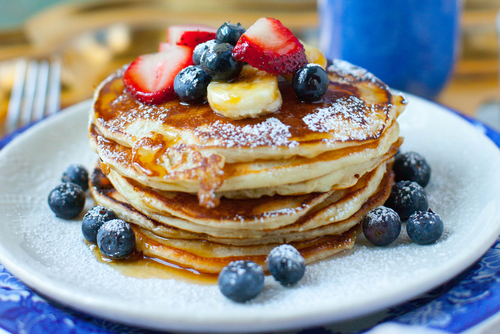
Fast food is highly palatable, meaning its components are broken down very rapidly in the mouth, it doesn’t require much chewing, and it triggers reward centers in the brain rather quickly. The combination trains the palate to enjoy these highly processed, high stimulation foods. As a result, people are less likely to want wholesome, fresh foods.
Fast food consumption and the prevalence of food addiction have been linked in studies.
Long term impacts of fast food
There is a lot of evidence that regularly eating fast food is bad for your health. This is due to fast food being high in sugar, salt, saturated fats, trans fats, and processed ingredients, while low in antioxidants, fiber, and many other nutrients.
- Fast food meals are often very low in fiber. People following low fiber diets are more likely to suffer from digestive diseases like constipation and diverticular disease, as well as reduced gut flora.
- Fast food can have irreparable effects on health, according to studies. Among these risks are obesity, insulin resistance, type II diabetes, and various cardiovascular conditions.
- Researchers examined the effects of Western diets on the immune system in the Nutrition Journal Trusted Source. The diet consists of high amounts of sugar, salt, and saturated fat derived from only a few sources. This type of diet can negatively affect inflammation, infection control, and cancer rates, as well as cause allergic and inflammatory diseases.
- There is a link between fast food consumption and asthma, rhinoconjunctivitis, and eczema, according to a study in the journal Thorax.
- According to the Food and Drug Administration (FDA), eating salty foods increases blood pressure, which means a person is more likely to suffer from heart attacks, strokes, kidney disease, or heart disease.
- The unintentional lack of understanding of basic meal preparation, cooking, and healthy eating is another consequence that results from young people regularly eating fast food. Show me an average teen that can cook – and I will introduce him/her to my unicorn.

Fun and Fat Fast Food Figures and Facts
Fast food is a bigger part of the American diet than you may think, and it puts both young and old
Americans in greater danger of developing a wide range of health problems, some of which are potentially life-threatening. How you fuel your body has an enormous impact on your overall health and wellness. And while some chains are slowly beginning to offer healthier options, eating out is typically not a healthy choice.
Fast food tends to be high in salt, sugar, saturated fats, trans fats, calories, and processed preservatives and ingredients. A lot of well-conducted research has proven the negative health effects of consuming too much of these.
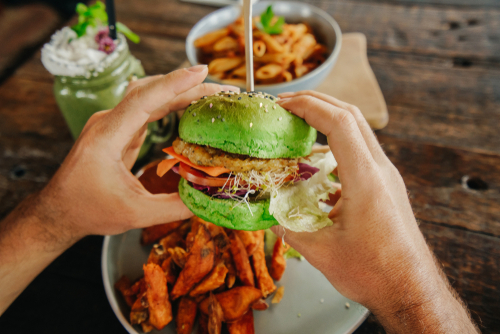
Not all fast food is bad, however. Some menu items might be lower in these substances than others, while some fast food outlets might focus on providing more healthful options. However, this is not the case for the majority of fast food outlets, or the majority of food items they sell.
When looking for healthy road trip meals, a person should try to identify fast food items that contain less salt, fat, sugar, and total carbohydrates and generally try to restrict the amount of fast food they consume. When going on a road trip look towards non perishable road trip food for healthy travel snacks recipes.
Here are some fast food facts to keep you going until your next slice of pizza:
- Fast Food’s global net worth in 2020 – $223 billion.
- In the United States, individuals spend an average of $1,200 a year on fast food, while American households spend around 10% of their income on fast food.
- 24% of adults eat three or more fast food meals per week.
- Americans spend $200 billion dollars annually on fast food.
- Worldwide, McDonald’s sells around 75 hamburgers every second.
- Nearly half of fast food chains fold due to use of antibiotics in products.
- 80% – that’s the percentage of Americans that visit a fast food outlet at least once a month.
- 24% of Americans adults eat fast food meals more than three times a week.
- 34% of children and adolescents are eating a fast food meal today.
- Transfats were linked directly to raised cholesterol in 2015 – high cholesterol levels are one of the leading causes of heart disease.
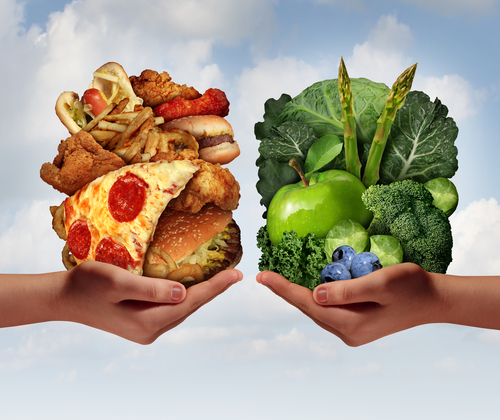
With the ongoing hype around health food and eating better, you will be forgiven to assume that the fast food industry is om a sharp decline. You would be wrong! Stats show that the industry is thriving.
It would be wise to start introducing healthier options to you and your family sooner rather than later, but how do you find that balance?
Is There a Best Time to Start Eating Healthy Foods?
Fitness, a healthy diet, stress reduction, sleep and to quit smoking, are some options to consider in a healthy lifestyle. Keep healthy habits if you already have them and if you need to improve at least one of these areas, give it extra attention. Your healthy lifestyle should be a positive experience for long-term success, remember, every improvement, no matter how small, counts.
To answer the question above, “The best time to introduce healthy foods to your diet is right now.”
Half of the population would rather fill in their tax returns than to try and follow a daily, healthy diet. In some ways it seems that people change religions easier than they change their diet. We would like to show you how to introduce healthier options to your daily meals and make easy changes that will improve you and your family’s health.
You are more likely to eat nutritious food if your palate is stimulated. |
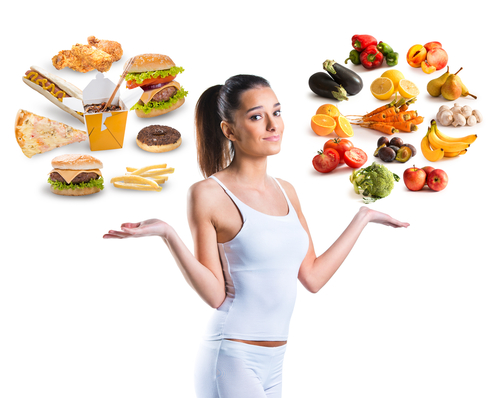
What is the best time to eat?
What a silly question you may say, “I eat when I’m hungry or when it is breakfast, lunch or dinner time, right? Despite the simple act of eating, a large amount of our health problems arise from the actions we take. You can eat properly if you know when to eat… and what.
After your hard workout, do you delay or skip your breakfast? Do you eat right before you go to bed? When is the last time you ate? It’s especially important to be cognizant of this when you’re traveling on a road trip with family.
In today’s fast paced world of high stress it can be difficult to find a convenient time to eat – or a place to stop and have healthy road trip meals while you’re on the road. The general consensus is that it is even more difficult if you want to eat healthy food, however, we would like to show you that it is possible:
Breakfast
- Eat your first meal within 30 minutes after waking up
- 7 am is an ideal time for breakfast
- Breakfast should be eaten no later than 10am
- Make sure your breakfast contains protein

Lunch
- 12:45 p.m. is the ideal time to eat lunch
- Keep a gap of 4 hours between your breakfast and lunch
- Do not eat lunch after 16h00
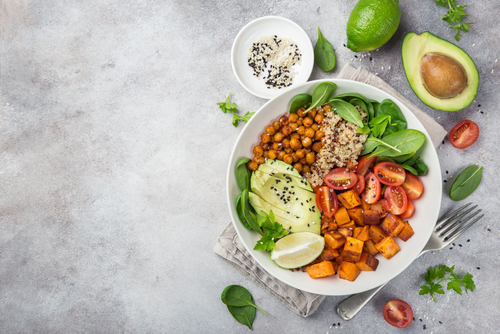
Dinner
- Dinner should be eaten before 19h00
- Dinner and bedtime should be separated by three hours
- Eat dinner no later than 22h00
- Having dinner close to bedtime can interfere with your sleep
When you eat is just as important as what you eat. This carries the same weight, if not more, when you are on a long road trip. Choosing what and when you snack can mean the difference between a safe and comfortable trip or something quite disastrous. Choose your cross country road trip food and beverages with some thought – don’t just grab the most colorful or sweetest options.
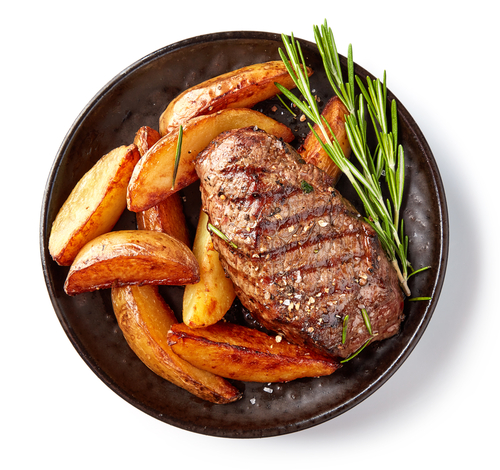
| If you want your diet to be healthier, you should emphasize nutrition and not calories. |
How to Eat Healthier on a Road Trip: Simple steps for healthy road trip meals
The phenomenon of healthy eating can be complicated because of the numerous myths that surrounds it. Pale, bland food combined with unrealistic fitness goals and contradictory studies about said foods does not push a reluctant ‘dieter’ towards healthier options. There is no need to feel overwhelmed. The more stimulating your palate is, the more likely you are to adhere to a healthy eating regimen.
- Make sure you eat whole foods rather than processed foods. Consider fresh fruits, vegetables, and whole grains instead of frozen pizza and instant ramen noodles. Foods such as these are loaded with essential nutrients, such as protein, fiber, healthy fats, vitamins, and minerals, as opposed to processed foods that contain empty calories. Include veggies in your lunch and dinner, as well as fruit at snacktime.
- Drinking sugary drinks is not healthy. A new study estimates that American adults drink 45 gallons of soda a year on average. Besides the obvious risks of Type II diabetes and obesity, consuming sugary drinks can also harm the liver, prematurely age the body, and cause anxiety. For a much healthier alternative drink unsweetened beverages or infused water instead of packaged juices and sodas.
- Make healthy food readily available. When the hunger hits, most people instinctively reach for, and eat, the first thing they can reach. Your home and office should have easy-to-access and visible healthy food. Store some healthy snacks in your pantry at eye level, and keep a supply of cooked whole grains and fresh fruits and vegetables in your fridge.On a road trip store goodies like almonds, pistachios, and dried berries in a jar and keep them in your car.
- Fish is good for you. Fish (especially fatty fish like salmon and mackerel) should be eaten at least twice a week, according to the American Heart Association. Superfood rich in omega-3 fatty acids can improve brain and heart health and reduce the risk of diseases like Alzheimer’s, dementia, and diabetes.
There are many other ways to introduce healthier food options into your daily lifestyle and prepare healthy road trip meals. Find what works for you and stick with it. Go nuts for nuts and seeds, substitute whole grain flour in baking, buy smaller plates, count nutrients, not calories and boost your probiotic intake.
Apart from that, make sure you drink at least two liters of water each day and don’t shy away from fatty foods. Natural fats like fat in dairy products promote satiety, as well as better vitamin absorption. Try these simple dietary changes today and make 2021 your healthiest year yet!
| Keep your cooler closed when not in use! Healthy road trip meals will stay chilled and fresher for longer. |
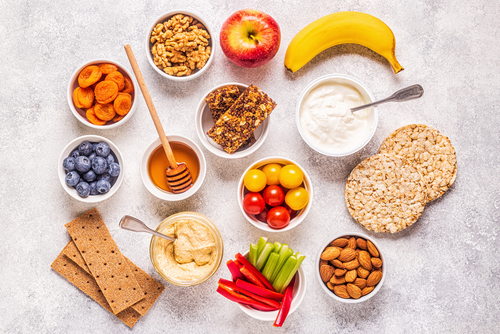
Planning your healthy snack box for your road trip: cooked and pre-cooked healthy road trip meals
A standard cooler with ice packs will hold enough healthy road trip meals and beverages for a few days. Anything longer, though, means you will either need a portable 12V travel refrigerator or stop and grab fresh groceries and ice along the way. Both will work, but you have fewer options if you need to stop for supplies.
One problem with whole, natural foods is that they tend to spoil easily, especially without a fridge in your car. In most cases, however, you can store many healthy foods without them spoiling, provided they are stored at the right temperature and humidity. Below are a few healthy ideas for cooked f
Cross Country Road Trip Food (Cooked)
| Breakfast | Lunch | Dinner |
| Muffins A pre-prepared bacon and egg muffin or wrap Cream cheese-filled bagels Banana bread Croissants Pancake bites with blueberries Oat cookies | Salad Various sandwiches (peanut butter and jelly, Vegemite, honey, etc.) Wraps Muffins Savory scrolls Boiled eggs (pre-peeled) Tuna or salmon Crackers and cottage cheese Chicken or turkey pinwheels Tuna salad sandwiches (keep separately until ready to eat) | Sliced or shredded cold roast meat, such as roast chicken, for use in sandwiches, wraps, or just enjoyed by itself Salads such as pasta, egg or potato salads Rice with chicken with veggies Frittata Quiche |
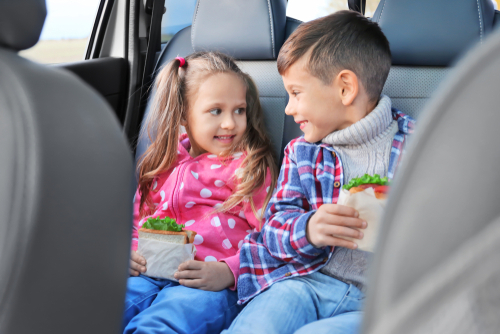
Cross Country Healthy Road Trip Meals (Raw or uncooked)
While you may be tempted to grab one of those candy bars when you fill up on gas for your road trip, you will regret it. In addition to the fact that a Candy bars contain barely any nutritional value, it contains harmful high fructose corn syrup.
Having healthy snacks in your car can help you avoid taking those candy bars because you know something better is waiting for you. Here is a short list of healthy, non-perishable snacks:
- Fresh fruit and nut butter
- Trail mix
- Protein and granola bars
- Energy bites
- Nuts and seeds
- Fruit and veggie chips
- Unsweetened yogurt
- Roasted chickpeas
- Fresh veggies and nutritious dip
- Avocados
- Cheese and crackers
- Beef or other Jerky
- Dark chocolate and almonds
| If you want your kids to enjoy their drinks in the back seat without spilling, make sure to pack easy-to-use drink bottles. |
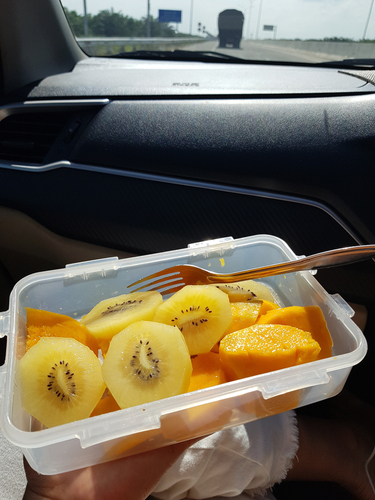
Refreshingly Healthy Road Trip Drinks
During a long drive, it is necessary to stay hydrated. Dehydration can cause you to lose concentration, not an ideal scenario when driving. Be sure to make a water bottle for each family member. Water dispensers at rest stops will let you refill your reusable water bottles.
All these healthy road trip snacks will require a drink! Here are a few healthy drink options to consider:
- Bottled Water
- Coconut Water
- A fruit-flavored sparkling water
- Almond milk in individual servings
- Unsweetened Ice Tea
- Kombucha
- 100% Fruit Juice
- Sugar-free Sports Drinks
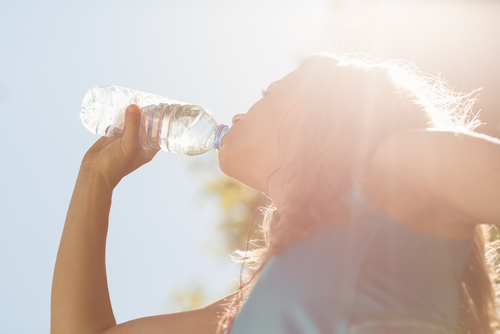
Healthy road trip meals: Here are some no-no’s before you go-go!
An extended car ride can feel more like a headache than an adventure if you’re tired, bloated, or rushing to the nearest rest stop. If you’re planning a road trip, avoid these risky foods to ensure a smooth trip.
- Greasy fast food
- Fizzy drinks
- Tomatoes
- Citrus
- Milkshakes
- Salty snacks
- Coffee and Tea
- Candy
These foods contain small-chain carbohydrates that are difficult to digest, like high-fructose corn syrup. While eating sweets while driving might give you a quick burst of energy, you might pay the price later in discomfort.
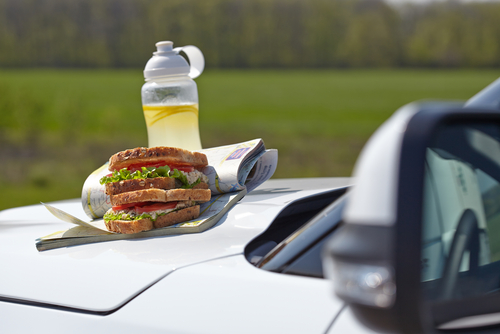
Enjoy the drive
It may seem difficult to eat healthy road trip meals while you’re on the road, but planning ahead and bringing nutritious snacks will help you stay energized and prevent hunger pangs.
When you rent a car for your family road trip, you can bring along the whole family. Just make sure you rent a car with enough space for the gang and the road trip food.
